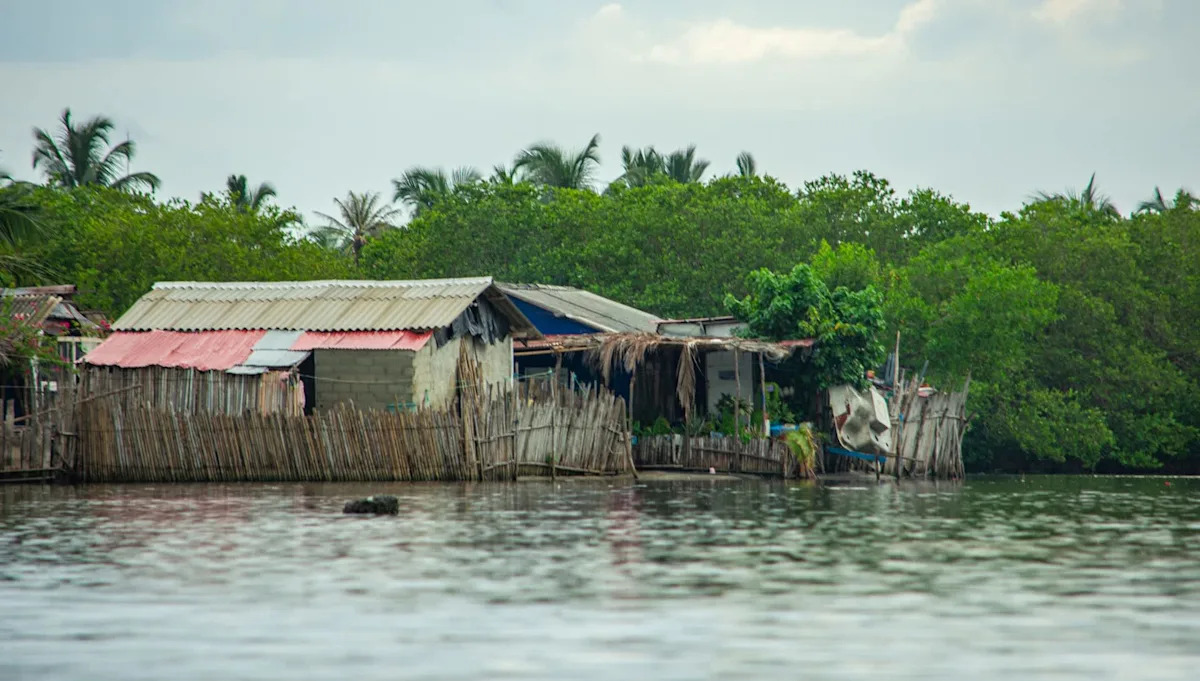Residents of a famed Colombian port city hope to maintain their community, even as rising sea levels and coastal erosion threaten to destroy it.
What’s happening?
The city of Buenaventura is a popular tourist location on the Pacific Ocean, and is home to about 40% of Colombia’s annual trade.
Unfortunately, numerous villages within Buenaventura have also become ground zero for coastal erosion, according to The Guardian. Intense high tides, known locally as puja, have washed away much of these villages’ coastlines and impacted thousands of families.
In Juanchaco, these tides have washed away more than 325 feet of coastline, put another 2,500 at risk, and destroyed 22 homes. In La Barra, more than half of the inhabited land has been destroyed.
Roads and piers have also been impacted, putting a strain on residents and businesses alike.
“Gradually, the beach is pushing us back,” marine biologist Jesús Hernando Gamboa told The Guardian. “The sandbags won’t protect us completely, and some people have lost their homes. It’s becoming inevitable.”
Why is coastal erosion important?
These Buenaventura villages show the realities and the dangers of erosion on global coastlines.
Air pollution has led to constant temperature increases worldwide, melting glaciers and ice caps. Oceans have also become warmer, causing water to expand. All of this has led sea levels to rise at a rapid pace.
In 2024, global sea levels rose by nearly a quarter-inch. Since 1993, when satellites started recording ocean heights, sea levels have risen by four inches, and the rate at which they rise has more than doubled.
Some experts warn that, by 2100, ocean levels could have risen by as much as 6.6 feet. Such an increase would put many current coastal cities, states, and communities at risk.
What’s being done about coastal erosion?
The local government declared a state of emergency last summer, and it continues to monitor the coastline. But residents have also taken some matters into their own hands.
Many members of local communities have decided to relocate to a higher elevation within the same area, rather than moving out completely. Oftentimes, these community members are supported by the tourism industry that centers around the nearby Uramba Bahia Malaga National Natural Park.
“It is surprising to see how my house is suddenly surrounded by water,” tourist boat owner Herlin Caicedo told The Guardian. “And I have to take the boat to go to the shop, or get wet, or wait hours to be able to walk out.”
Join our free newsletter for good news and useful tips, and don’t miss this cool list of easy ways to help yourself while helping the planet.
